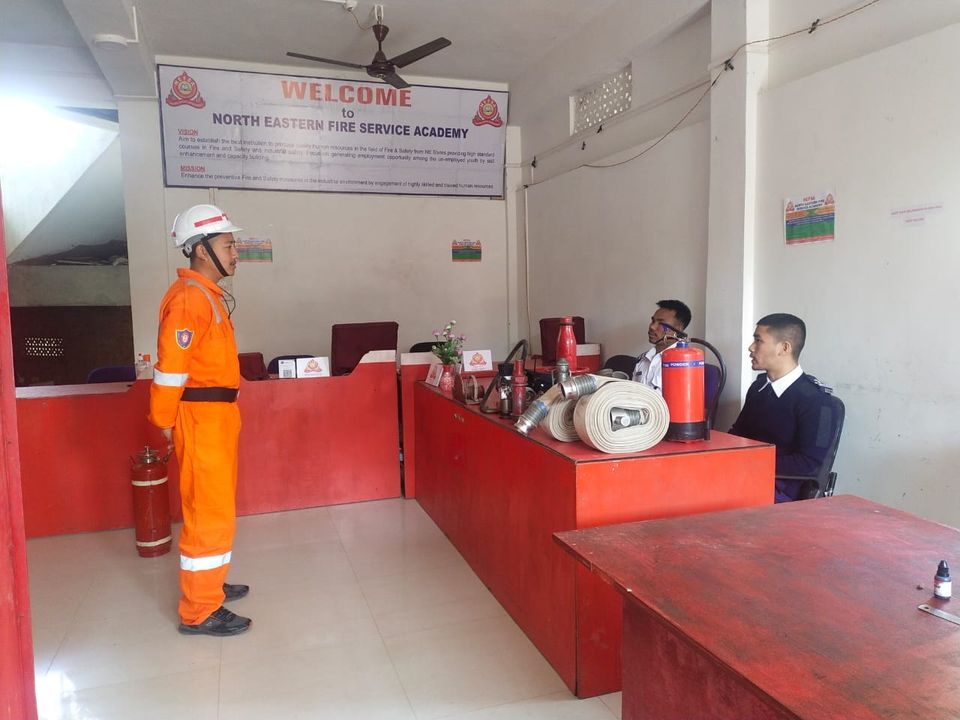When it comes to fire safety, hostels are among the most vulnerable establishments. With dozens (sometimes hundreds) of students or guests under one roof, ensuring a clear, well-practiced fire evacuation plan can make the difference between chaos and safety. At NEFSA Fire Academy, we believe preparedness is the key to saving lives.
In this blog, we’ll walk you through step-by-step guidelines to create a fire evacuation plan for your hostel, keeping compliance, safety, and practicality in mind.
Why Your Hostel Needs a Fire Evacuation Plan
Fires spread quickly, and in a hostel environment, occupants are often asleep, unfamiliar with exits, or distracted. A proper plan ensures:
-
Swift evacuation with minimum confusion.
-
Clear roles and responsibilities for hostel staff and wardens.
-
Compliance with fire safety regulations and insurance requirements.
-
Peace of mind for parents, students, and management.
Step 1: Conduct a Fire Risk Assessment
The foundation of any evacuation plan is a thorough risk assessment. This includes:
-
Identifying potential fire hazards (kitchen, electrical wiring, smoking areas, appliances).
-
Checking escape routes for obstructions.
-
Ensuring adequate firefighting equipment (extinguishers, alarms, hydrants).
-
Highlighting vulnerable occupants (students with disabilities or medical conditions).
A detailed assessment allows you to design a plan that fits your hostel’s unique layout.
Step 2: Map Out Escape Routes
Every hostel must have:
-
At least two exit routes from every floor.
-
Clearly marked stairwells (never rely on elevators).
-
Evacuation maps displayed in hallways and inside rooms.
-
Assembly points in safe open areas away from the building.
Tip: Use glow-in-the-dark signage and emergency lighting for night-time safety.
Step 3: Assign Roles and Responsibilities
During an emergency, confusion is the enemy. Assign roles such as:
-
Incident Commander / Hostel Manager – Overall in-charge during evacuation.
-
Floor Wardens – Guide residents out, check rooms, and close doors.
-
Assembly Point Leaders – Conduct headcounts and report missing persons.
-
Communications Officer – Calls the fire department (101/112) and informs authorities.
By assigning roles, you ensure faster, more organized evacuations.
Step 4: Establish Alarm & Communication Systems
An evacuation plan is only effective if everyone is alerted on time. Ensure:
-
Fire alarms and manual call points are functional.
-
Staff and wardens know who calls emergency services.
-
Evacuees receive clear instructions through PA systems, alarms, or wardens.
Keep emergency contact numbers displayed prominently at notice boards.
Step 5: Train, Educate & Conduct Drills
A written plan is not enough — practice makes it real.
-
Conduct fire drills at least once per term.
-
Train staff and students to use fire extinguishers.
-
Simulate different scenarios (day, night, blocked exit).
-
Review and update the plan after every drill.
Drills help eliminate panic and build confidence during real emergencies.
Step 6: Maintain Equipment & Review the Plan
Fire safety is not a one-time activity. Your hostel must:
-
Inspect fire alarms and extinguishers monthly.
-
Test emergency lights and signage.
-
Record maintenance, drills, and incidents.
-
Review the plan annually or after structural changes.
A well-maintained safety system reduces risks and ensures compliance with the National Building Code (NBC) of India and local fire regulations.
NEFSA’s Expertise in Fire Safety
At NEFSA Fire Academy, we specialize in:
-
Designing custom fire evacuation plans for hostels, schools, and institutions.
-
Conducting on-site fire risk assessments.
-
Training hostel staff and students in firefighting and evacuation drills.
-
Providing certified fire safety courses.
Our mission is simple: to make every hostel a safer place to live and study.
Final Thoughts
Creating a hostel fire evacuation plan is not just a legal requirement — it’s a moral responsibility. With a clear plan, proper training, and regular practice, you can protect lives, reduce risks, and build trust among students and parents.
If you’re ready to secure your hostel with a professional fire evacuation plan, connect with NEFSA today and let our experts guide you every step of the way.
Contact us today to know more about admissions, batch schedules, and course details.
Visit: www.nefsaindia.com
Location: Dibrugarh, Assam
For More Blogs:- Click here







